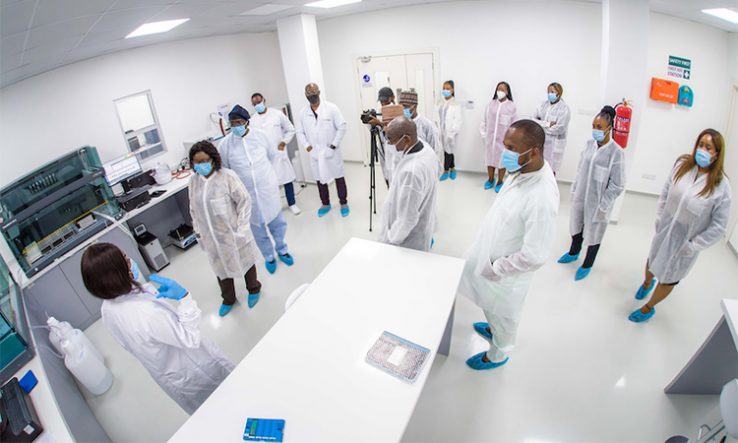
Image: 54gene
With 60 per cent of samples sequenced, project hopes to hit target later this year
Nigeria-based genomics company 54gene has confirmed that it is on track to finish sequencing the genomes of more than 100,000 Nigerians by the end of this year.
In February 2020, 54gene teamed up with Nigerian scientists to launch a study investigating genetic causes of non-communicable diseases in the country. The study required the consortium to collect and sequence 100,000 genomes to create a dataset that can offer population-specific insights.
With more than 200 ethnic groups and 500 different languages, Nigeria has one of the most diverse ethno-linguistic concentrations in the world.
The project, which has a twin objective to create knowledge and power in precision medicine, is run by 54gene non-profit organisation African Center for Translational Genomics.
54gene Founder and chief executive officer, Abasi Ene-Obong, told Research Professional News that the consortium has completed whole-genome scans for more than 60 per cent of the samples. “We are on track to complete the rest by the fourth quarter of the year,” he said.
Through ACTG, the Non-Communicable Diseases Genetic Heritage Study (NCD-GHS) consortium has now also published its first publication titled Promoting the Genomic Revolution in Africa through the Nigerian 100k Genome Project.
The consortium is made up of scientists from 54gene, the Nigerian Institute of Medical Research, and the Center for Genomics Research and Innovation at the National Biotechnology Development Agency. It also includes researchers from multiple academic institutions in Nigeria and the London School of Hygiene and Tropical Medicine.
Open to collaboration
Segun Fatumo, co-lead of NCD-GHS and first author on the consortium’s inaugural paper, said: “I am so proud of what NCD-GHS has achieved in only about two years”.
He added that the current lack of genomic diversity in global datasets has resulted in missed scientific and medical opportunities.
Ene-Obong explained to Research Professional News that once all the scans have been completed, the project will be open to give other researchers access to the genomic data.
“Of course, there are restrictions, though, to the type of studies that our data can be used [for] to protect the interests of the consortium and the consent of the research participants,” he added.
Ene-Obong noted that efforts are underway at 54gene to create a platform for collaboration between groups working in different African countries. “Current expansion efforts include countries in francophone West Africa, as well as Southern, Eastern and Northern Africa.”
Parties interested in collaborating can reach out via the African Centre for Translational Genetics at hello@actginitiative.com